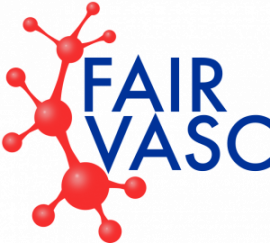
1. What is the role of your team in the Fairvasc project?
The Query Implementation Team (QIT) team is involved in the drafting of queries regarding the main AAV-related aspects. In other words, experts in query design collaborate with researchers and clinicians to find the most appropriate way to interrogate the dataset, with the ultimate aim being to retrieve clinical features, survival, demographic data and so on. We have to deal with data protection assurance, so at the moment we decided in advance that only a small number of highly interesting queries will be drafted.
2. What tasks have been completed by your team so far and which of them have been the most challenging ones?
At the moment the team is working around the discussion on the best way to recall data and to use the whole full dataset at its best. So we have initially defined the main questions we all considered of great interest, regarding both patient characteristics and outcomes. For my part, I have participated as a clinician, so I have tried to help my colleagues to figure out the questions I would like to ask about AAV-patients and the disease in general, in order to even improve my everyday clinical practice. Unfortunately, I am often quite busy due to clinical duties, so I cannot always attend the meetings, but I try to because sharing the different points of view from different backgrounds is very exciting and helpful.
3. Each team consists of people from different European centres. How is the work of such a group organised? This group meets every three Thursdays, during an hour-remote meeting. Each time we discuss about a topic (infections, medications, diagnostic criteria…) and in general we try to plan the following meeting’s focus, to let members think about it and “be prepared”.Since the queries will retrieve data from the whole interface, we always keep an eye on which is the “basis” of this work, so we should be aware of what is inside the registries in terms of variables, data quality, harmonisation. The pandemic slightly affected this group’s activity, because we could not meet in person in a face-to-face initial brainstorming; however, my feeling is that everything is going on well!
